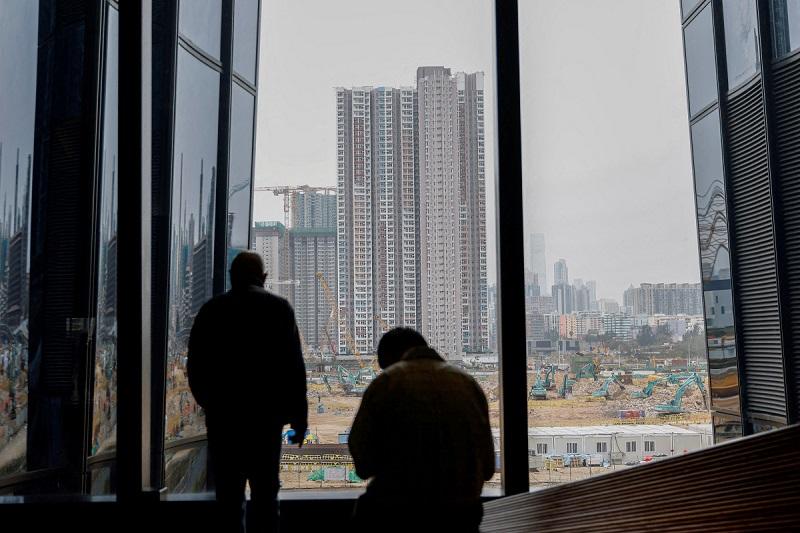5 tax-friendly destinations for OFWs

As of 2022, there were more than 1.96 million overseas Filipino workers (OFWs) globally. They are virtually everywhere -- in Asia, Europe, Australia, North and South America, as well as Africa.
According to the Philippine Statistics Authority (PSA), the majority of OFWs as of 2022, or 44.4%, were employed in elementary occupations, or simple and routine tasks, while others were working as service and sales workers (15.5%), and plant machine operators and assemblers (12.4%), among others.
Under the Philippine Tax Code, OFWs — Filipino citizens working and deriving income overseas — are exempt from income tax in the Philippines. However, their income sources within the country, such business activities, investments, and properties, are still subject to tax.
OFWs, of course, are subject to the income tax of the host country, with rates varying based on the country's prevailing tax laws. Here are some of the countries — and one special administrative region — that can be considered tax-friendly for Filipino migrant workers.
United Arab Emirates
The UAE is one of the top destination for OFWs, with at least 13.7% of the 1.96 million working there. The Middle Eastern country implements zero personal income tax but levies 5% value-added tax (VAT) on goods and services, according to Investopedia, a leading financial website.
The oil-rich country also levies excise tax on specific goods that are harmful to health, as well as corporate tax on the net income or profit of corporations and other entities from their business.
Singapore
In Singapore, personal income tax rates are computed based on an individual’s tax residency. According to Inland Revenue Authority of Singapore, tax residents refer to Singaporean citizens, as well as foreigners who have stayed or worked in Singapore for at least 183 days in the previous calendar year, and/ or three consecutive years.
Foreigners with a one-year valid work pass are likewise considered tax residents, but their status will be reviewed at the point of tax clearance after ceasing employment. Individuals who stayed in Singapore for less than 183 days will be considered a non-resident.
Singapore uses a progressive tax rate to determine personal income tax, ranging from 0% to 24%. However, residents are allowed to claim tax reliefs, and deduct allowable expenses, donations and personal reliefs.
Meanwhile, non-tax residents are workers under short-term employment in Singapore. Individuals who have worked for 60 days or less in a year are exempted from income tax. However, exempted in the policy are those who receive payment in the capacity of a board director, a public entertainer or a professional.
Director's fees and other income are taxed at the prevailing rate of 24% and are not entitled to tax reliefs. Those who have stayed or worked in Singapore for 61 to 182 days are taxed at 15% or progressive resident rates, whichever are higher, and are also not allowed to claim tax reliefs. Director's fees and other income are likewise taxed at 24%.
Hong Kong
Unlike Singapore, the government of Hong Kong does not base an individual’s tax rate on residency status. Instead, the special administrative region (SAR) observes a territorial basis of taxation, which means only income sources derived within Hong Kong are subject to tax.
The Hong Kong government levies three separate income taxes: salary, profits, and property. OFWs and other migrant employees who rely on wages fall under salaries tax, which is being levied on net chargeable income at progressive rates ranging from 2% to 17%, or at a flat rate of 15% on assessable income less personal deductions, whichever is lower.
Bahrain
There is no personal income tax in Bahrain, for locals and immigrants -- that itself earns the country a plus point among Filipino jobseekers seeking overseas job without worrying about high taxes.
Since January 2019, however, Bahrain introduced a Value Added Tax (VAT) system, which is applied to most goods and services although some items may be exempt or zero-rated. According to PwC's World Tax Summaries, standard VAT rate in Bahrain was 5% from January 1, 2019 to December 31, 2021. It was increased to 10% from January 1, 2022.
Filipinos and other foreigners in Bahrain are also required to contribute to the Social Insurance Organization (SIO). Much like in the Philippines' with the Social Security System (SSS) or Government Service Insurance System (GSIS), the employer deducts these contributions from the employee's salary. According to the International Labour Organization (ILO), a recently approved law has made this contribution for migrant workers mandatory.
Switzerland
Similar to other countries, personal income tax in Switzerland is levied based on tax residency. Tax-residents are taxed on their worldwide income and wealth and non-tax residents are taxed on Swiss income.
According to PwC, income taxes are levied at three different levels: at the federal level, cantonal level, and municipal level. Rates are progressive at the federal level and most of the cantons. Some cantons introduced flat rate taxation.
Meanwhile, foreign workers who do not have Swiss C permit — equivalent permanent residency — are mandated to pay tax at source, which would be paid by their employers.
Tax at source is usually deducted in a foreign worker’s salary every month, with employers sending it to the cantonal tax authorities. Rates differ from canton to canton and cover federal, cantonal and communal income taxes. —KBK, GMA Integrated News




